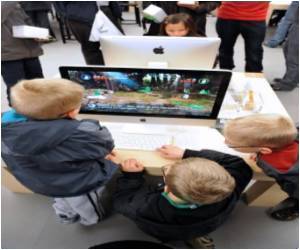Researchers revealed that the time spent playing video games could be linked with problem behavior in children, and this was more significant than the types of games played.

The researchers found that playing games for more than three hours a day increased hyperactivity amongst the children. They were unable to establish a link between playing violent video games and real-life aggression or a child's academic performance. They also found that low levels of play, under an hour a day, might actually promote good behavior and lower the levels of hyperactivity.
The study suggests that parents should pay close attention to the amount of time their children spend on video games. Andy Przybylski from Oxford University's Oxford Internet Institute and lead researcher of the study said, "This research suggests that playing electronic games may be a statistically significant but minor factor in how children progress academically or in their emotional well-being."
The findings are published in Psychology of Popular Media Culture.
Source-Medindia









